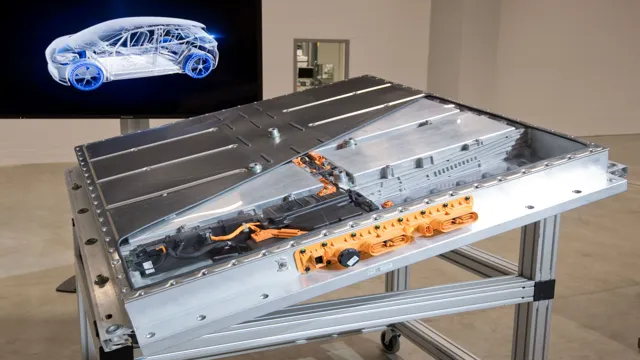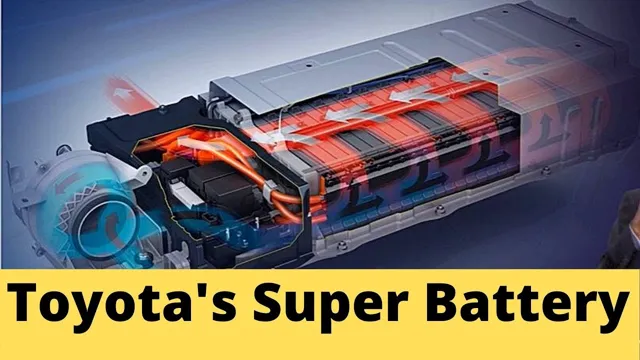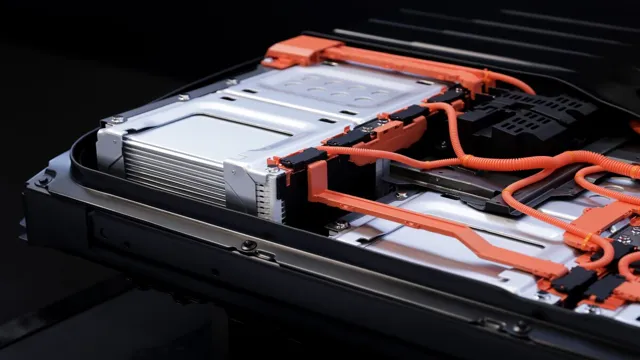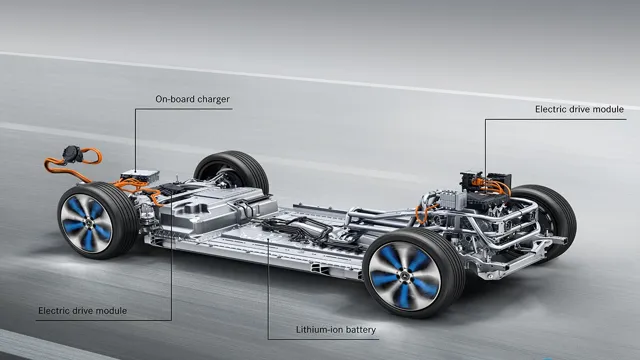Rev up your Ride with the Best Battery Pack for Electric Car Conversion!
Electric cars have revolutionized the way we drive, providing a greener and more sustainable alternative to gas-guzzling vehicles. But what keeps these electric cars running? It all comes down to the battery! Electric car batteries are the key component that delivers power to the vehicle, powering the motor and keeping it moving forward. But how exactly do these batteries work? And what are the different types of electric car batteries available? In this ultimate guide, we’ll dive into all things electric car batteries, providing you with the knowledge you need to make informed decisions.
From battery chemistry to charging options, we’ll cover everything you need to know to fully understand electric car batteries and make the most out of your electric vehicle.
Battery Pack Basics
If you’re considering an electric car conversion, one of the most important components you’ll need is a battery pack. The battery pack is the heart of your electric vehicle, providing the power you need to get where you’re going. But what exactly is a battery pack? Simply put, it’s a group of batteries that are wired together to provide a specific voltage and amperage output.
This output is then used to power the electric motor that drives your car. When choosing a battery pack for your electric car conversion, you’ll need to consider factors such as the size of your vehicle, your driving range, and your budget. It’s also important to choose high-quality batteries that are designed for use in electric vehicles, as they will be more reliable and offer better performance than standard lead-acid batteries.
With the right battery pack, you can enjoy all the benefits of electric driving, from low-cost fuel to quiet, emissions-free operation.
Understanding Capacity and Voltage
When it comes to battery packs, understanding their capacity and voltage is crucial. Capacity, measured in ampere-hours (Ah), refers to the amount of energy a battery can hold and supply. Voltage, measured in volts (V), indicates the level of electrical force that pushes the energy through the circuit.
So, a higher capacity means a battery can hold more energy, while a higher voltage means it can deliver that energy faster. When choosing a battery pack, it’s important to consider both factors and match them to the requirements of the device being powered. For example, a flashlight may require a battery with a high voltage to provide bright light, while a drone may require a battery with a high capacity to support longer flight times.
Ultimately, finding the right balance between capacity and voltage will ensure optimal performance and longevity for both the battery pack and the device it powers.
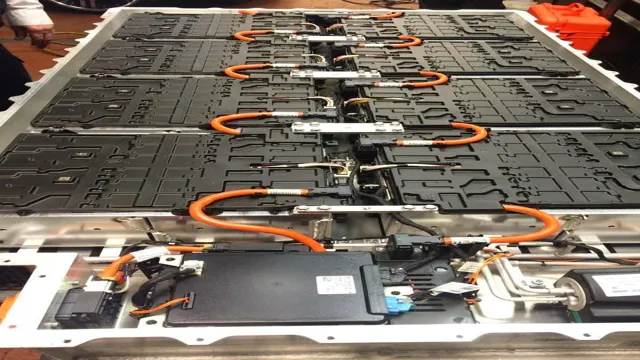
Types of Batteries for Conversion Kits
When it comes to electric bike conversion kits, the most crucial component is the battery pack. Without it, your bike won’t go far or fast. So, what are the battery pack basics you need to know? First, there are three main types of batteries for conversion kits: nickel-metal hydride (NiMH), lithium-ion (Li-ion), and lead-acid.
NiMH batteries are affordable but can be heavy and short-lived. Lead-acid batteries are even cheaper but heavy and require more maintenance. Li-ion batteries are the most expensive but also the lightest, longest-lasting, and most energy-dense.
When choosing a battery pack, consider its voltage and capacity. Voltage determines the power output, while capacity dictates how far and long your bike can go on a single charge. Choose the right battery pack for your electric bike conversion kit based on your budget, weight preferences, and riding needs.
Choosing the Right Battery Pack
If you’re thinking of converting a car to electric, one of the most important decisions you’ll need to make is selecting the right battery pack. There are a number of factors to consider, including the weight and size of the pack, its voltage, and its energy storage capacity. It’s important to choose a battery pack that is powerful enough to meet the needs of your vehicle, while also being manageable in terms of weight and cost.
When it comes to the battery chemistry, there are a variety of options available, including lead-acid, nickel-metal hydride, and lithium-ion. Each of these chemistries has its own pros and cons, and the right choice will depend on your specific needs. Ultimately, selecting the right battery pack will be essential for ensuring that your electric conversion is successful and meets your expectations.
So take your time, do your research, and choose wisely!
Considerations for Range and Performance
When it comes to choosing the right battery pack for your application, there are a few considerations you’ll want to make to ensure that you get the range and performance you need. One of the most important factors to consider is the chemistry of the battery. Lithium-ion batteries are a popular choice because they offer high energy density and long cycle life, making them ideal for applications where size and weight are important factors.
However, for applications where high power is needed, such as electric vehicles or power tools, other chemistries like nickel-metal hydride (NiMH) or nickel-cadmium (NiCad) may be a better choice. It’s also important to consider the capacity of the battery pack, which will determine how much energy it can store and how long it will be able to power your device. This can be balanced against the weight and size of the battery pack, as larger packs will generally have more capacity but will also be heavier and bulkier.
Ultimately, choosing the right battery pack for your application will depend on a variety of factors, including your performance requirements, budget, and the types of devices or equipment you’re powering.
Factors to Consider for Cost-Effectiveness
When considering the cost-effectiveness of battery packs, it is essential to choose the right one. One crucial factor to consider is the capacity of the battery. It’s important to choose a battery pack with enough capacity to meet your needs.
However, a higher capacity battery pack may be more expensive, so it’s essential to weigh the cost-benefit ratio. Another factor to consider is the type of battery cell. Lithium-ion batteries are widely used due to their high energy density and longer lifespan.
However, they are also more expensive. On the other hand, nickel-metal hydride batteries are cheaper but have a lower energy density and shorter lifespan. Ultimately, choosing the right battery pack depends on your specific needs and budget.
So, it’s essential to analyze your requirements before making a decision.
Top Brands and Models to Consider
When it comes to choosing the right battery pack, there are a few brands and models that stand out from the crowd. One of the most popular and well-respected brands in the industry is Tesla, known for their high-quality battery packs and innovative technology. Another top brand to consider is LG Chem, which produces reliable and long-lasting battery packs that are ideal for home energy storage systems.
For those looking for a more affordable option, the Renogy Deep Cycle AGM Battery is a great choice, offering a balance of quality and affordability. When choosing a battery pack, it’s important to consider factors such as the capacity, voltage, and overall lifespan. By doing your research and choosing a reputable brand, you can ensure that you are getting a reliable and efficient battery pack that will provide long-lasting power for your home or business.
Installation and Maintenance
A battery pack for electric car conversion is an important component that needs careful installation and maintenance. When installing the battery pack, it is crucial to follow the manufacturer’s guidelines and recommendations for proper handling and installation. Safety measures must be taken when handling the battery pack to prevent accidents and injuries.
It is also essential to ensure that the battery pack is compatible with the electric car’s electrical system before installation. Regular maintenance is necessary to extend the battery pack’s lifespan and ensure optimal performance. Maintaining the battery pack includes monitoring the state of charge, inspecting for damages and leaks, and cleaning the terminals and connectors.
A well-maintained battery pack will ensure that your electric car conversion remains reliable, efficient, and most importantly, safe to use.
Professional vs. DIY Installation
When it comes to installation and maintenance, choosing between DIY and professional installation can be a tough decision. It depends on several factors such as your budget, skill level, and time availability. DIY installation can save you money, but it’s not always the best option.
Professional installation may seem expensive, but it is worth the investment in the long run. Professionals offer expertise, experience, and warranties, which give you peace of mind. They ensure that your installation is done correctly, and you won’t have to worry about costly mistakes.
In contrast, DIY installation can be satisfying, but if not done correctly, it can cause damage to your property or lead to accidents. The pitfalls of DIY can be costly, and not just financially. It is crucial to weigh the pros and cons before making a decision.
Knowing your limits and when to hire a professional can save you time, stress, and money in the long run. So choose wisely and make sure to consider every aspect before deciding which option to choose.
Tips for Proper Battery Maintenance
When it comes to battery maintenance, proper installation and upkeep are crucial for ensuring longevity and avoiding potential hazards. One of the primary considerations during installation is ensuring that the battery is properly connected to the equipment it powers, with the correct polarity and cable size. Batteries should also be mounted securely, with a level base and ventilation to prevent overheating.
Additionally, regular maintenance should include cleaning the terminals and connectors, monitoring electrolyte levels and topping off as needed, and testing the battery’s performance with a voltmeter or load tester. Remember, neglecting your battery can lead to expensive replacements or even dangerous incidents, so it’s essential to stay vigilant and prioritize proper maintenance.
Conclusion
In conclusion, the battery pack for electric car conversion is a game changer for those looking to make their vehicles more environmentally friendly. Not only does it reduce carbon emissions and save money on fuel costs, but it also gives drivers a newfound sense of power and control. With a battery pack, electric car conversion has never been easier or more accessible.
So why wait? Upgrade your ride today and join the electric vehicle revolution!”
FAQs
What is a battery pack for electric car conversion?
A battery pack for electric car conversion refers to a set of batteries that are installed in a traditionally gas-powered car to power an electric motor.
How many batteries are needed for an electric car conversion?
The number of batteries needed for an electric car conversion depends on the car’s body weight, the desired range and speed, and the type of batteries used. Generally, a typical electric car conversion requires anywhere from 20 to 30 batteries.
What kinds of batteries are used for electric car conversion?
Lithium-ion batteries are the most commonly used batteries for electric car conversions because they provide a high energy density, which means they can store more energy in a smaller space. Other types of batteries used include lead-acid and nickel-metal hydride batteries.
How long does a battery pack for electric car conversion last?
The lifespan of a battery pack for electric car conversion varies depending on factors such as the type of batteries used, the frequency of charging and discharging, and the weather conditions. On average, a properly maintained battery pack can last anywhere from 5 to 10 years.
